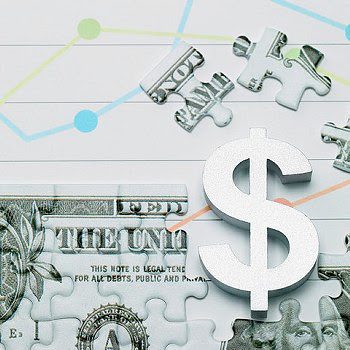Like my blog? Sign-Up for a FREE newsletter! OR Give a ‘Like’ to my FaceBook Page
 In today’s economic climate, making ends meet is getting more and more difficult. Jobs aren’t exactly growing on trees, but one thing seems to be: money. Central banks are printing currency like never before to provide the marketplace with liquidity. These banks believe that liquidity will help spur economic growth. With the forex market acting as the largest financial market in the world, literally made of money, you have a unique opportunity to exploit it for extra money. Trading forex could be a profitable part-time job.
In today’s economic climate, making ends meet is getting more and more difficult. Jobs aren’t exactly growing on trees, but one thing seems to be: money. Central banks are printing currency like never before to provide the marketplace with liquidity. These banks believe that liquidity will help spur economic growth. With the forex market acting as the largest financial market in the world, literally made of money, you have a unique opportunity to exploit it for extra money. Trading forex could be a profitable part-time job.
Step 1: Set up shop. Don’t just go online and start trading forex because “it’s fun.” You need to set up a designated area in your home to trade. You should choose a place that is quiet and where you don’t be distracted during trading sessions. This place should function as a home office. You want this kind of environment because you want to treat this as a job. In many ways, it is. One of the major reasons people don’t make as much money as they could in forex is because they don’t take it seriously.
Step 2: Determine your trading capital. Another mistake that rookie traders make is that they do not specify what their trading capital will be. In general, your trading capital should be no more than 1 percent of your total savings. Naturally, this means that micro lots (i.e. trading with $1,000 or less), are not going to yield tremendous gain without some significant risk-taking on your part. Most professional money managers fail to break 15 percent returns in a year using large sums of money. Your best bet for boosting returns is to do as professional money managers do: use large sums of money. How large? Several hundred thousand dollars would be ideal. However, if you can’t afford to trade with that kind of money, you’ll have to up your risk by using leverage. Leverage lets you borrow money to trade in the forex market. So, if you have $1,000 and you leverage that 100:1, you will be allowed to trade with $100,000. This also means you can lose $100,000 if the trade goes against you. If you feel comfortable taking this risk, however, that $100,000 could turn into a significant sum of money on a profitable trade.
Step 3: Establish trading rules. Trading rules are important. Set a profit target and don’t deviate from it. If you have a goal to make $100 a day, then stick to that goal. Once you’ve hit it, stop trading. It doesn’t matter if you’re “on a roll.” This isn’t Vegas, it’s the financial markets. Your only mission is to hit your profit targets for the day. Equally as important is to set stop loss limits for the day. If have a total stop loss of 10 percent of your trading capital, then stop trading when you hit this amount. Doing these two things will make a dramatic difference on the money you make if only because you will not make poor investment decisions during a trading session. Ideally, you’ll set a profit and loss limit of roughly 4 to 5 pips per trade. This allows you to take profits without leaving yourself too vulnerable to market movements.
Step 4: Use trading software. Trading software takes your emotions out of the equation. Almost all professional traders use them. Trading software plots the movement of the market and makes it easy to spot trends. The easiest way to make money in forex is to discover which way the market is trending and just trade on the trend. When there is no trend, do not trade for that day.
Considerations
Never trade with money that you can’t afford to lose. A general rule of thumb is to expect to lose money in forex at some point. It will happen and you don’t want to be playing with rent or mortgage money. while forex could replace a part-time job, you should allocate a portion of your savings to get started and not use current income.
Author bio: This is a guest post contributed by Liz Goldman, a freelance forex strategy and finance writer. Liz writes about advanced trading and also attempts to answer beginner investor’s questions, such as what is forex?
